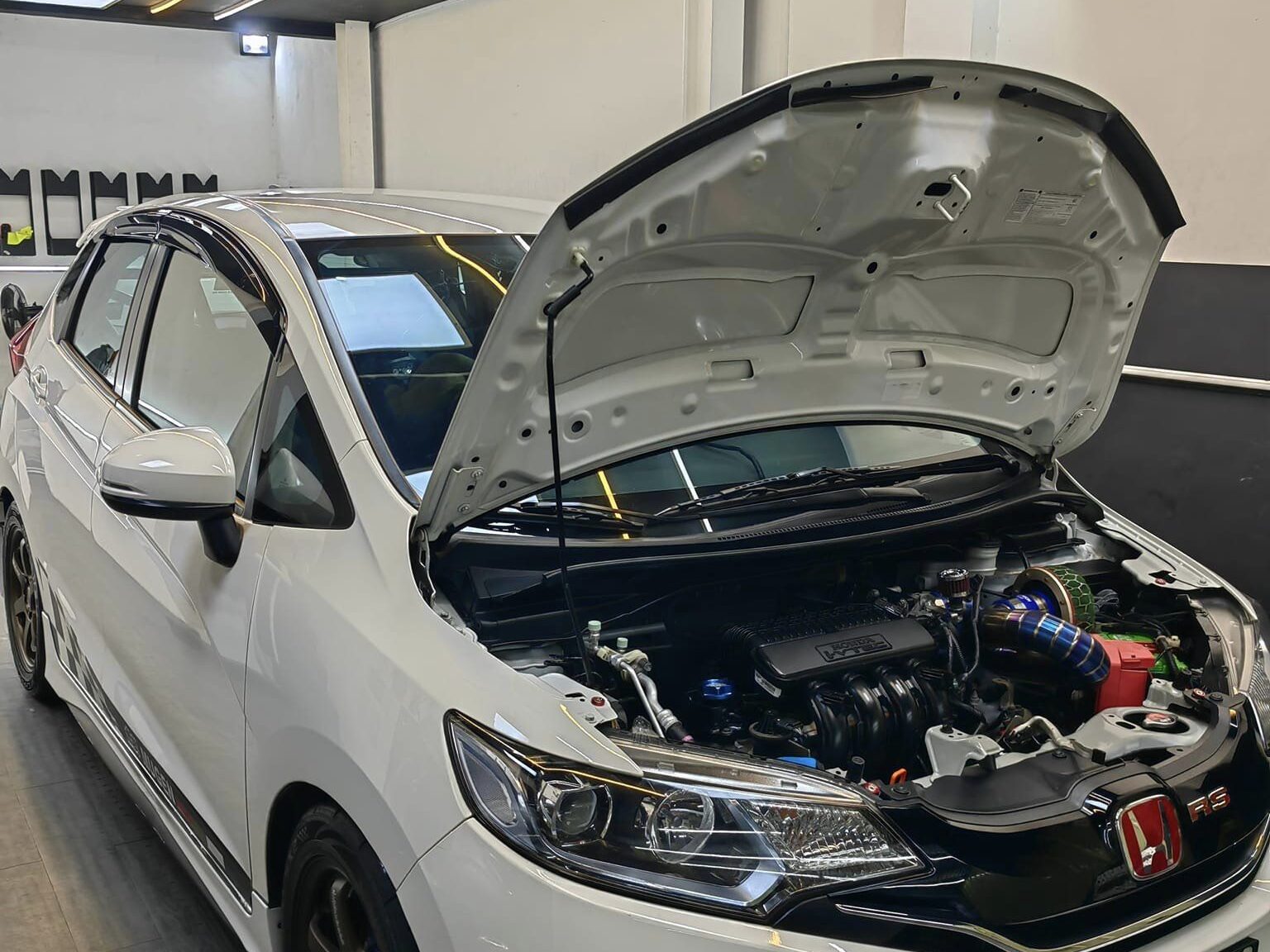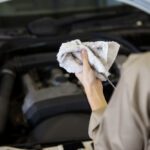
Engine Maintenance is essential for keeping it running smoothly and avoiding expensive repairs.
Proper engine maintenance is relatively straightforward to do, yet many people overlook the importance of taking care of their vehicles in this way.
In this article, we’ll explore how to keep your engine running well so you can save time and money on costly repairs down the road.
1. Scheduling Regular Tune-Ups

Scheduling regular tune-ups is vital to keeping your engine running smoothly. This routine of engine maintenance should include reviewing service records and identifying common issues that may arise over time. By staying on top of minor repairs, you can prevent more significant problems from occurring in the future.
If it’s been a while since your last tune-up, it’s essential to take your car into a mechanic and have them inspect it for any signs of wear or damage. They can check things like spark plugs, belts and hoses, air filters, and oil levels. Have them adjust and replace any parts that aren’t functioning correctly so you don’t have to worry about them in the future.
It’s also important to pay attention to warning lights on your dashboard – they could indicate an issue with the engine that needs immediate attention. With regular maintenance, you can catch these signs early and avoid costly repairs down the line.
Moving forward, make sure to schedule regular tune-ups for your car to keep it running smoothly for years to come.
Now onto checking fluids and filters…
2. Checking Fluids And Filters

Engine maintenance is a vital part of ensuring your car runs smoothly. Checking fluids and filters regularly can help keep your engine running optimally. Here’s how:
- Test fluid levels: Ensure that all the fluid levels in the engine are at the correct level, including oil, brake fluid, transmission fluid, and power steering fluid.
- Check filters: Replace any dirty or clogged air, fuel, cabin, and oil filters. This will help ensure optimal performance from your engine.
- Inspect for wear: Check for any worn or cracked belts and hoses which could cause damage to your engine if left untreated.
By following these simple steps you can make sure that your engine continues to run efficiently with minimal disruption.
Now it’s time to move on to inspecting belts and hoses – an equally important part of routine maintenance!
3. Inspecting Belts And Hoses

Engine maintenance is essential for keeping it running smoothly. You must inspect belts and hoses regularly to ensure they are in good condition. This can be done by testing the tension of the belts, inspecting for signs of wear and tear, and replacing parts when necessary.
| Testing Tension | Inspecting Wear | Replacing Parts |
|---|---|---|
| Use a tension gauge to test belt tightness | Look for signs of cracking or fraying | Replace any damaged parts immediately |
| Check for squeaking as an indication of loose tension | Scrutinize hoses for bulges or soft spots | Inspect O-rings and clamps for corrosion |
| Adjust belt tension if needed | Make sure there are no leaks or punctures in the hose | Replace any parts that have reached their service life |
By following these steps, you can keep your engine running at its best. However, it is also important to address any warning signs that may arise during regular engine maintenance checks. Warped belts, swollen hoses, and leaking liquids all indicate potential problems with your engine system that need to be addressed quickly. Moving on from this section, let’s look into how we can identify and address warning signs in our engine maintenance process.
4. Addressing Warning Signs
It’s important to recognize and address the warning signs of engine maintenance before they become serious issues. Ignoring symptoms can lead to costly repairs or, worse yet, complete engine failure.
Here are a few key indicators of potential engine problems:
- Unusual noises: strange clunks, knocks, thuds, squeals, or grinding emanating from the engine can all indicate trouble.
- Low oil pressure: this could indicate a worn bearing or other problem with the crankcase.
- Rough idle: if your car is idling roughly or accelerating poorly, it may be time for an inspection.
- Excessive smoke: smoke coming from the tailpipe could be a sign of worn piston rings or other mechanical issues that needs to be addressed soon.
Recognizing these effects early on can save you money and keep your engine running smoothly for years. Taking proactive steps to maintain your vehicle helps prevent major issues down the road and can help ensure your car’s safe operation for many miles ahead—without having to utilize professional services right away.
5. Utilizing Professional Services

The sound of a healthy engine purring is music to the ears. It’s an assurance that all its parts are working together in harmony. But keeping it that way requires regular maintenance and attention.
Utilizing professional services can help you make sure your engine keeps running smoothly. Regularly testing spark plugs and replacing oil are essential steps to ensure your engine is running its best. Servicing specialists have the experience and knowledge to identify any potential issues before they become major problems.
From checking fluid levels to inspecting the belts and hoses, a well-maintained engine will last longer and give you peace of mind while driving. With their expertise, professionals can also recommend preventative measures such as changing out air filters or examining fuel injectors that could save you money in the long run.
Regular engine maintenance is vital to extending the life of your engine, so be sure to take advantage of professional services whenever possible. A good service center can provide detailed reports on your vehicle’s condition so you always know what needs repair or replacement and when it should be done for optimal performance. Investing in professional services now can help you avoid costly repairs.
Frequently Asked Questions
What Type Of Engine Oil Should I Use?
Oil grades and brands can vary depending on your vehicle’s make and model, so it’s important to do some research first.
Generally speaking, most engines will require either synthetic or conventional oil. Synthetic oils are designed to last longer and withstand higher temperatures than conventional oils, but tend to be more expensive.
Additionally, certain brands may offer better protection than others depending on what type of engine you have.
Ultimately, make sure you use the oil grade that is recommended by the manufacturer for optimal performance.
What Is The Recommended Service Interval For My Engine?
The recommended service interval for any engine will depend on the model and make of the vehicle, but most manufacturers recommend getting an oil change every 3,000-5,000 miles or at least once a year.
It’s also important to check other components such as spark plugs, air filters, and coolant levels during these intervals.
What Are Some Of The Most Common Engine Issues?
Common engine issues include ignition timing, coolant leaks, and fuel problems.
Ignition timing is when the spark plugs in an engine fire at the wrong time and can lead to poor performance or even damage the engine.
Coolant leaks can happen when hoses become worn or clogged, leading to a decrease in coolant levels and potentially causing the engine to overheat.
Lastly, fuel problems are typically caused by dirty air filters which reduce air flow and cause a decrease in fuel efficiency.
Conclusion
It’s important to keep up with regular engine maintenance to ensure your vehicle runs smoothly.
By using the right type of oil, following the recommended service interval and being aware of any strange noises or excessive heat coming from the engine, you can help prevent potential issues and keep your engine running in top condition.
If you do notice any problems, don’t hesitate to have a professional take a look.
With proper care and attention, you can enjoy a long-lasting and reliable vehicle that won’t let you down.



